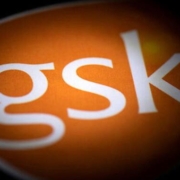Britain’s GSK halted enrollment and vaccination in three trials of the company’s experimental vaccine against the respiratory syncytial virus (RSV) in pregnant women, the latest setback in developing a vaccine for the microbe.
SAB Biotherapeutics Announces Update to the Phase 3 NIH ACTIV-2 Trial Design Evaluating SAB-185 for Treatment of COVID-19
Biopharmaceutical, Clinical Trials, COVID-19 Infections, Covid-19 Variants, Hospitalized COVID-19 Patients, Immunotherapy, Monoclonal Antibodies, Omicron (B.1.1.529) (South Africa), Placebo, R&DClinical-stage biopharmaceutical company SAB Biotherapeutics announced an update to the design of the ongoing Phase 3 ACTIV-2 trial evaluating the clinical efficacy and safety of SAB-185 for the treatment of participants with mild-moderate COVID infections at higher risk for progression to hospitalization.
Biohaven Pharmaceutical Holding Company Ltd. entered into a worldwide license agreement with Bristol Myers Squibb Co. for the development and commercialization rights to the novel, Phase 3-ready anti-myostatin adnectin taldefgrobep alfa for spinal muscular atrophy (SMA)
Drugmaker Shionogi applied for approval to make and sell the company’s oral COVID-19 treatment in Japan, the firm said on February 25.
COVID-19 Update: Omicron BA.2 Raises Questions, FDA Limits GSK Antibody
BNT162b2 (Pfizer and BioNTech), CDC, Clinical Trials, Coronavirus Cases, Covid-19 Data, COVID-19 Studies, COVID-19 Vaccinations, FDA, GlaxoSmithKline, Monoclonal Antibodies, mRNA-1273/Moderna COVID-19 Vaccine (Moderna), Multisystem Inflammatory Syndrome in children (MIS-C), Omicron (B.1.1.529) (South Africa), Omicron BA.2, R&D, Sotrovimab, Teenagers, Vir BiotechnologyThe BA.2 subvariant of Omicron, which appears to be even more transmissible than Omicron, is accounting for more than a third of global COVID-19 cases. In other news, the U.S. Food and Drug Administration placed limits on the use of GlaxoSmithKline and Vir Biotechnology’s COVID-19 antibody therapeutic, sotrovimab.
Shares of Kodiak Sciences plunged in trading on February 23 after the company announced its Phase II/III study of a novel antibody biopolymer conjugate failed to hit the mark in treatment-naïve subjects with neovascular (wet) age-related macular degeneration.
Moderna entered into a long-term agreement with Thermo Fisher Scientific for the manufacturing of its COVID-19 vaccine and other experimental medicines based on mRNA technology, the companies said on February 23.
The U.S. Food and Drug Administration issued a Complete Response Letter to Ireland-based Mallinckrodt for the investigational hepatorenal syndrome (HRS) treatment terlipressin, a drug that has been approved in multiple indications across the globe.
Moderna Inc. has begun a late-stage study of a vaccine for respiratory syncytial virus (RSV) based on the same technology used to develop the company’s COVID-19 shots.
Getting infected twice with two different Omicron coronavirus subvariants is possible, but rarely happens, a Danish study has found.










